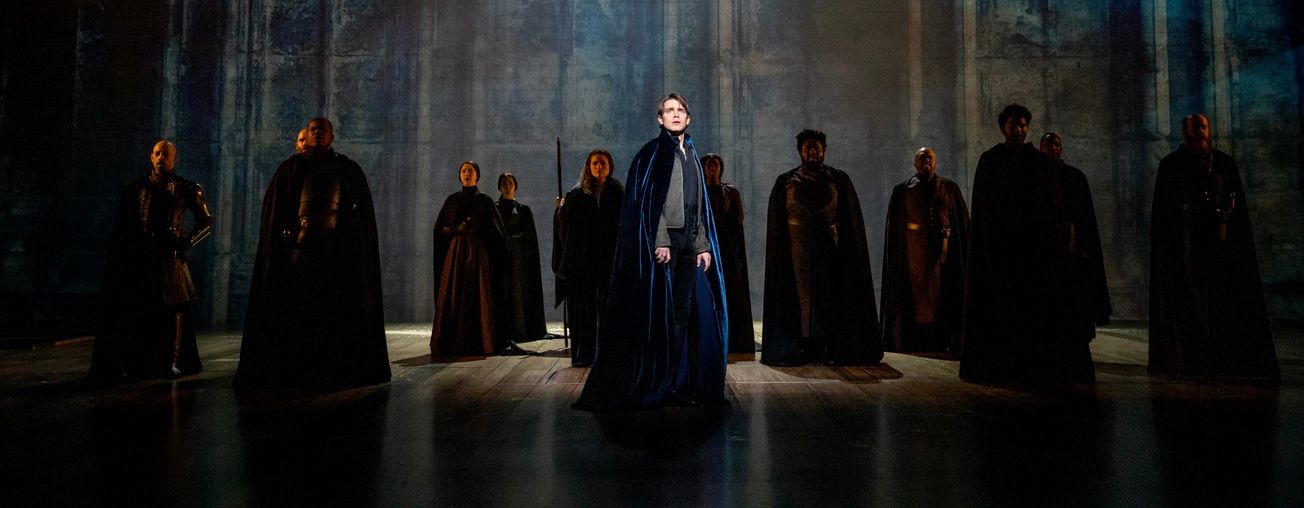Few would call the Middle Ages a period of thriving liberal democracy, but in Aaron Sorkin’s modernized upgrade to Lerner & Loewe’s 1960 classic “Camelot,” the quest for equality abounds. Protagonist King Arthur is dead set on transforming his loyal but brutish legion of warriors from knights who “behave badly” to ones who use their “might for right.” That idealistic ethos is quintessential Sorkin (creator of “The West Wing,” adaptor of Broadway’s recent “To Kill a Mockingbird”), who — with “Camelot”’ — imbues another historical work with gregarious dialogue, broiling romance and boundless hope for a more just future. The result is an at times dramatically lagging, but consistently polished and warming tale playing out at Lincoln Center’s Vivian Beaumont Theater.
Sorkin’s “Camelot” is my first theatrical encounter with the beloved legend King Arthur (Andrew Burnap), Arthur’s betrothed French Princess Guenevere (Phillipa Soo), his right-hand man Sir Lancelot (Jordan Donica), a roundtable of knights and the rest. Sorkin and director Bartlett Sher mercifully thwarted my preconceived notions of blinding chrome costumes and fog-clouded magic, opting for a more grounded fable — one rooted in current political debates about the ethics of national leaders — and executed by a skillful, ethnically diverse cast.


























































